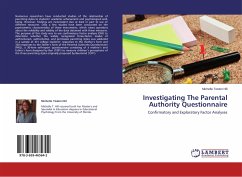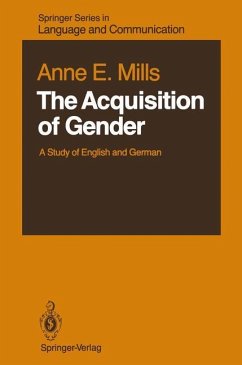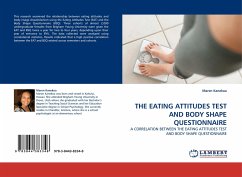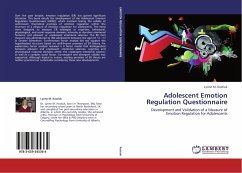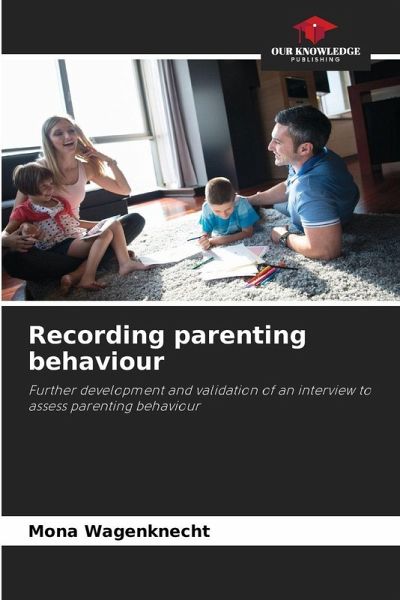
Recording parenting behaviour
Further development and validation of an interview to assess parenting behaviour
Versandkostenfrei!
Versandfertig in 6-10 Tagen
41,99 €
inkl. MwSt.

PAYBACK Punkte
21 °P sammeln!
Recording parenting behaviour remains an important and difficult task. Interviews are a valid but time-consuming method of doing this. To make the process more economical, an interview for recording parenting behaviour (IEEV, Amann 2016) was translated into a questionnaire (FEEV, Wagenknecht 2017) and reviewed with regard to the dimensions it covers. The IEEV in its questionnaire form assesses inadequate and adequate parenting behaviour across five stable dimensions that are statistically and contextually clear: parental demands (FE), appreciation (WS), clarity and guidance (KL), threats (DR) ...
Recording parenting behaviour remains an important and difficult task. Interviews are a valid but time-consuming method of doing this. To make the process more economical, an interview for recording parenting behaviour (IEEV, Amann 2016) was translated into a questionnaire (FEEV, Wagenknecht 2017) and reviewed with regard to the dimensions it covers. The IEEV in its questionnaire form assesses inadequate and adequate parenting behaviour across five stable dimensions that are statistically and contextually clear: parental demands (FE), appreciation (WS), clarity and guidance (KL), threats (DR) and punishment (ST). The FE, WS, DR and ST scales are partially externally valid. The KL scale is independent of the external criterion selected. Due to the small and homogeneous sample and the insufficient number of items for the KL, DR and ST factors, the results cannot be generalised. However, helpful starting points for a targeted application of the IEEV have been established.






